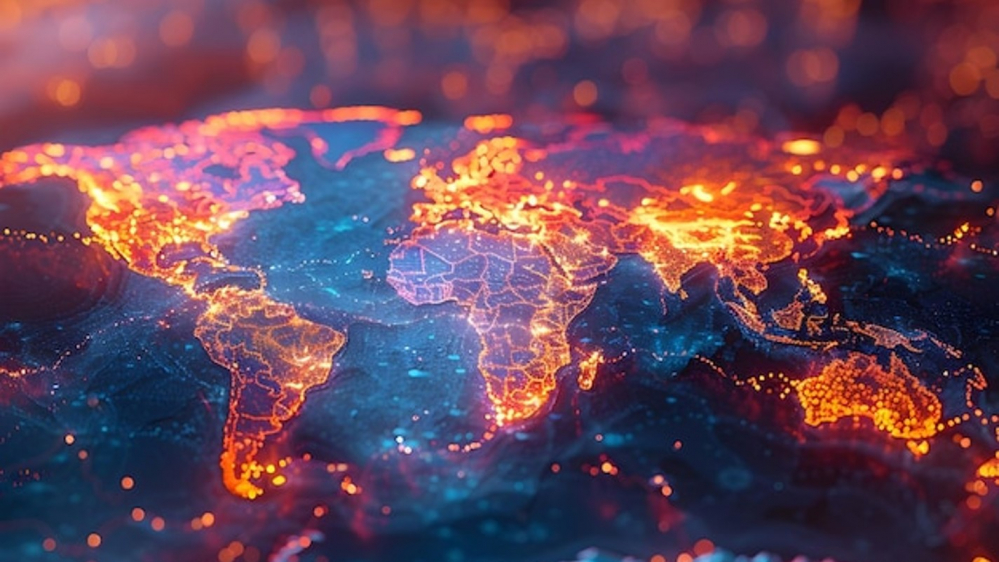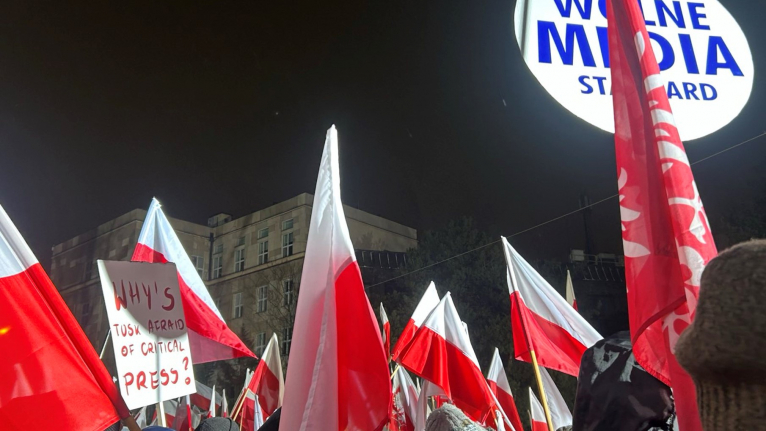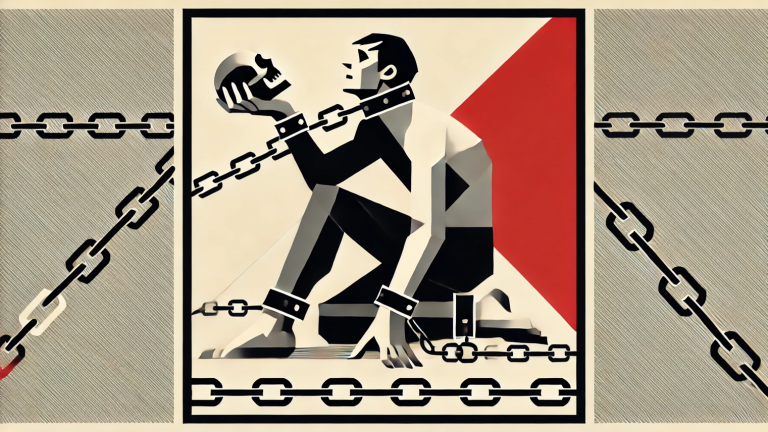Culture War Goes Global? Geopolitics in a new era
- 11.00 - 17.00
- Wednesday 20 November 2024
- Venue: The Hotel Brussels, Bd de Waterloo 38, 1000 Bruxelles
REGISTER HERE
About the conference
- Has the culture war become a key driver of geopolitics?
- Are cultural conflicts and uncertainties leaving the West unable to respond to a new era of great power conflict?
- Are “values” at the heart of the international order – or a cover for hypocrisy?
Today, we often hear that “Western civilisation” is at stake in geopolitical conflicts. Many insist that new international challenges call into question the values and beliefs of the West. International rivals are said to have not just alternative economic or military strategies which pose a risk, but also alternative value-systems or even civilisations.
At the same time, many allege that the weakening position of the West is not just a matter of sluggish economies or under-prepared militaries, but also their cultural and moral confusion. If Western societies struggle to take pride in their history, feel pride in their countries, or even define what a woman is, how could they defend their interests on the international stage? This conference will ask how moral and cultural questions became so tied up in geopolitical discussions.
***
By bringing together a diverse range of speakers, we hope to probe the way that competing cultural narratives – what is commonly called the culture war – are increasingly shaping not just politics domestically, but also internationally. We see this transformation in geopolitics in the rise of discussion around so-called “civilisation states” but also in the increased focus that “values” seem to play in foreign policy discussion. At the same time, global policymakers are increasingly attuned to potential cultural conflicts in the domestic politics of their geopolitical rivals.
We see a renewed discussion around what “Western Values” are and if and how these are at stake in major conflicts. For example, the idea of Western civilisation and values being “on the line” is often invoked in relation to support for Ukraine or Israel. At the same time, in both conflicts the West’s actions sometimes seem to catalyse support for those who position themselves explicitly against the West. As a Columbia University anti-Israel student protest group put it, ‘We are Westerners fighting for the total eradication of Western civilization. We stand in full solidarity with every movement for liberation in the Global South’.
Speakers include:
- Monika Gabriela Bartoszewicz, Associate Professor in Societal Security and Safety Department of Technology and Safety, UiT University Norway
- Anton Bendarzsevszkij, Director at Oeconomus Economics Research Foundation
- Bill Durodié visiting Professor MCC Brussels
- Professor Frank Furedi, Executive Director, MCC Brussels
- Nathan Levine, Research Fellow at the Asia Society Policy Institute's Center for China
- Ashley Rindsberg, investigative journalist; author, The Gray Lady Winked: How the New York Times' misreporting, distortions and fabrications radically alter history
- Ralph Schoellhammer, assistant professor of International Relations at Webster Vienna Private University, visiting fellow at MCC Budapest
- Niccolo Soldo, writer, Fisted by Foucault
- Krzysztof Tyszka-Drozdowski, writer with a specific focus on globalization, industrial policy, and international conflict
Programme and session descriptions:
10:30
Registration
11:00 – 11:10
Introduction, Jacob Reynolds, Head of Policy, MCC Brussels
11:10 – 11:30
Keynote: China and the Global Culture War
Nathan Levine, Research Fellow at the Asia Society Policy Institute's Center for China
11:30 – 11:50
Keynote: The Quest for the Moral Rehabilitation of the West
Professor Frank Furedi, Executive Director, MCC Brussels
11:50 – 12:30
Discussion
12:30 – 13:30
Lunch
13:30 – 15:15
Panel 1: Insecure, incoherent, unstable? Europe in a relativist age
Most analysts agree that the era of “Western hegemony” has come to an end. But what replaces it, and how should we adapt?
It seems that European elites find these questions especially difficult to answer. Indeed, European societies are said to be beset by a pressing absence of clarity when it comes to fundamental questions. Defining once straightforward ideas such as patriotism, national interest, or sovereignty has become increasingly difficult for European societies. Many European leaders prefer the elite jargon of diversity and inclusion to the hard-nosed reality of international politics.
It sometimes seems that, without any strong ideas, Europeans have been sleepwalking into a crisis. Even a war in Europe has not been enough to shake Europeans from clinging to old fictions. Whilst Macron has delivered long sermons or Scholtz pontificated about his Zeitenwende, US power has papered over the black hole that European elites call their “strategic autonomy”.
If the idea of European strategic autonomy lacks any real substance, might this be because our elites are simply incapable of conceiving of a vision which might attract support and loyalty? After all, Europe is a collection of very different national cultures – despite any similarities, what could a “strategy” for such a diverse group even look like?
But with the election of Donald Trump, is this all set to change? Are Europeans likely to respond to a new era of American isolationism by finally discovering a strategic vision for Europe? Or do the absence of answers to the big, civilisational, geopolitical questions of our time long predate Trump?
- Bill Durodié visiting Professor MCC Brussels
- Ashley Rindsberg, investigative journalist; author, The Gray Lady Winked: How the New York Times' misreporting, distortions and fabrications radically alter history
- Ralph Schoellhammer, assistant professor of International Relations at Webster Vienna Private University, visiting fellow at MCC Budapest
15:15 – 15:30
Coffee break
15:30 – 17:00
Panel 2: Competition or conflict? The West and the rest
If a previous era of geopolitics is crumbling, there is significant disagreement about who stands to benefit going forward.
One account insists that a collection of new “civilisation states” will emerge as the major competitors to the West. Such states are said not just to have different interests but to possess a confident, competing, civilisational mission. Russia, India, China or Turkey are often mentioned.
Some go even further, suggesting that in fact all of these “competitors” to the West share a basic orientation which makes them natural allies. The BRICS countries, for example, are said to be in the process of creating a new, alternative world order.
If much of this rhetoric can be overblown – the BRICS countries, for example, are as divided on key issues as they are united – the sense of a new “clash of civilisations” seems very real. Certainly, countries like Russia make no secret of their desire to establish a new order and to challenge the supposedly “immoral” culture of Western societies.
What is the real threat, if any, posed by the shift in the balance of power and the emergence of civilisational competitors? Are there in fact opportunities in the midst of this shift for countries with a strong national culture or sense of mission? Is the “non-Western” order a reality, or overhyped? And what is the real driver of the change in geopolitical power – the relative decline or the West, or its perhaps only temporary incoherence?
- Monika Gabriela Bartoszewicz, Associate Professor in Societal Security and Safety Department of Technology and Safety, UiT University Norway
- Anton Bendarzsevszkij, Director at Oeconomus Economics Research Foundation
- Niccolo Soldo, writer, Fisted by Foucault
- Krzysztof Tyszka-Drozdowski, writer with a specific focus on globalization, industrial policy, and international conflict
17:00
Wine Reception


